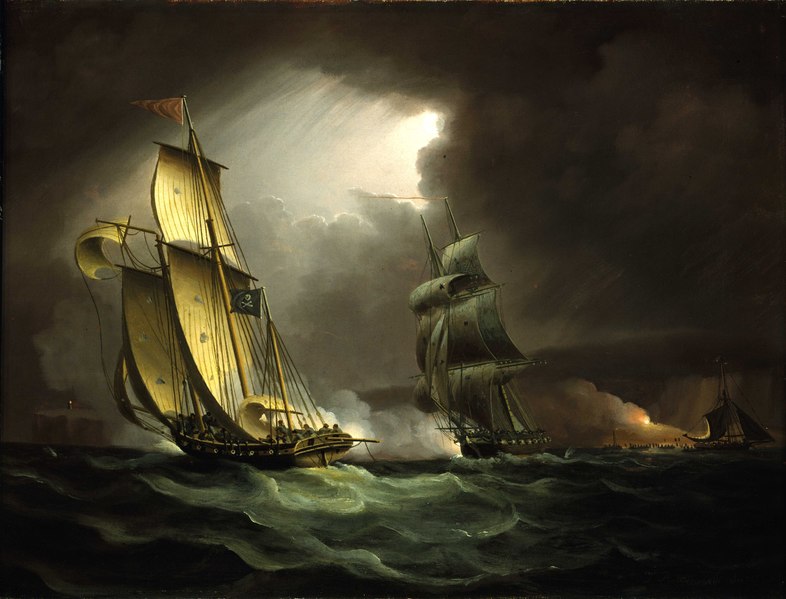
Monthly talk: Robert Hesketh – Smuggling in Devon
It was good to see another large attendance at our monthly meeting in May to listen to well-known local historian Robert Hesketh talk about Smuggling in Devon. Smuggling forms part of folklore and features in legends, novels and art works of many kinds. At its heart, smuggling is motivated by something which is timeless and certainly not something confined to history: tax evasion. The motivation of those today who use offshore accounts, tax havens in the British Virgin Isles or Jersey, or clever accountants to exploit loopholes in the law is very little different from those in earlier centuries who took great risks to bring into the country brandy, silk, tea and other commodities which were subject to high taxes. They just don’t like paying taxes!
Until tax and trade policies substantially changed in the mid-19th century, governments relied heavily on duties charged on imports to raise revenue. This made luxury goods, some becoming part of our everyday diet, very expensive. Smugglers knew that there would be no shortage of customers for these goods from people from all walks of life pleased to pay lower prices. The dangers faced by smugglers were considerable, as much from the risks all seafarers faced as from the force of law. In reality, there were many instances of tolerance of smuggling by the authorities, not least because so many people were happy to buy the tea or brandy at attractive prices. Collusion and corruption were widespread. Furthermore, the navy often preferred to focus its efforts on fighting the French or other enemy ships rather than pursuing smugglers.
The numbers of men, women and children involved in the smuggling industry in the 18th century is estimated to have been well over 160,000, with a very large number of vessels being used in the trade. The value of the trade is hard to calculate (smugglers weren’t keen to maintain their accounts!) but must have accounted for a large proportion of total imports, leaving a considerable hole in government finances.
Smuggling has certainly not disappeared from our world, and sadly we now know about it in all likelihood in the context of the smuggling of people, drugs and armaments. Few people today regard smugglers as in some way performing ‘a public service’ in the way that a large part of the population would have regarded smuggling up to the middle of the 19th century. Smugglers were often regarded as heroic and romantic figures, or just as likely, part of the everyday fabric of life in coastal communities in Devon. The same feeling hardly applies in modern day Kent or Calais.
The talk was highly instructive and enjoyable and Robert also offered some of his many booklets about local history and attractions, that the members could peruse and purchase on the spot.
John Vick, Chair
